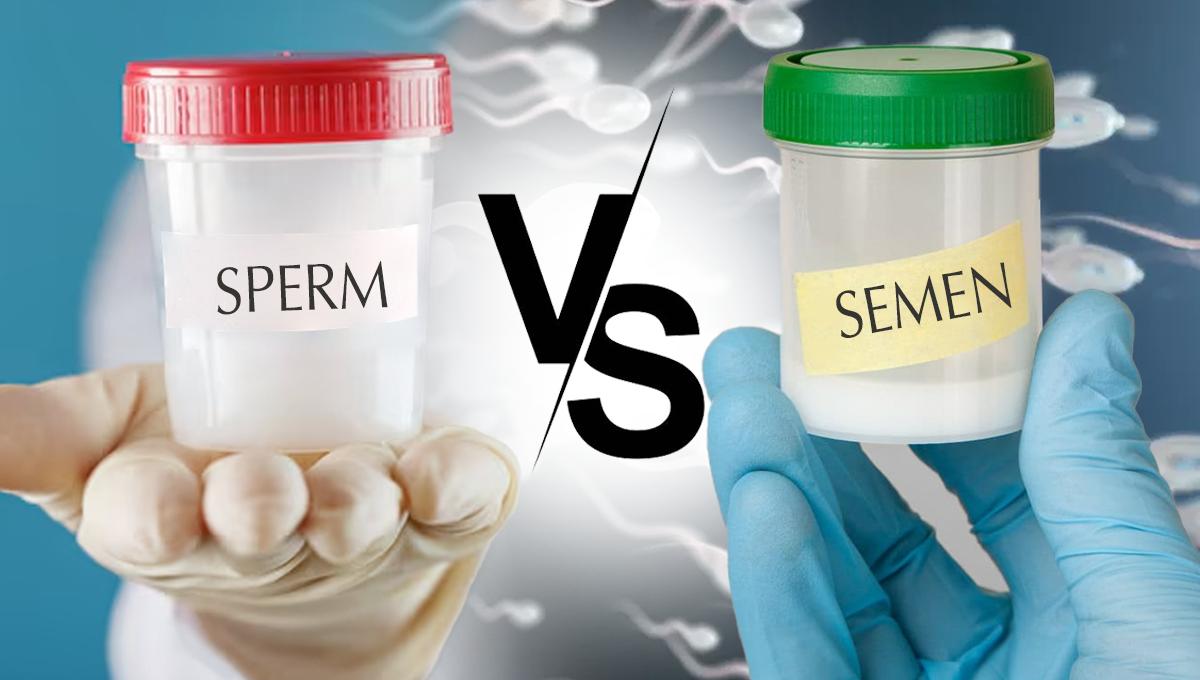You may be one of those people who seem to think that sperm and semen are the same thing. In fact, you may have used these two terms interchangeably. Well, jokes on you!
First, it is important to know that both sperm and semen are equally important for reproduction, and both play distinct, prominent roles in the reproduction process.
What is sperm?
According to the National Institutes of Health (NIH), sperm (which can be referred to spermatozoon (singular) or spermatozoa (plural)) are male sex cells that carry genetic material. Sperm are responsible for fertilising the eggs produced by females, leading to the formation of a fetus.
They are so tiny that they cannot be seen without a microscope. One ejaculation usually contains between 20 million and 600 million sperm.
Sperm have an oval head, a short middle, and a long tail, and they measure just 1/20th of a millimetre in length. They move by whipping their tails.
Sperm are produced in the two testes (testicles). It is important to note that the testes — located inside the scrotum (the skin sac underneath where the penis is attacdhed to the body) start producing sperm at puberty. Sperm production them continies throughout adult life, and begin to decline around the age of 40.
According to the Asian Institute of Nephrology And Urology (AINU), males can produce several million sperm every day, going up to roughly 100 million sperm each day. Other studies published in the NIH say that the testes make about 200 million sperm every day.
Once produced, sperm can stay alive within the male’s reproductive system for only a few weeks. However, a sperm can only survive for a few days omce it reaches the female reproductive system. At this point, it can either fertilise the egg within this duration or simply expire.
What is semen?
Semen is the fluid that is produced and ejaculated when a male experiences orgasm. Now, ejaculated sperm has to reach the uterine (fallopian) tubes for a female egg (ovum) to be fertilised. The journely is long, and so the sperm is carried and protected by the seminal fluid.
Having said that, it should be noted that semen is the mixture of sperm and seminal fluid. Semen only exists outside the body because sperm and seminal fluid can only combine at the point of ejaculation.
Seminal fluid is produced in the sex glands i.e. the seminal vesicles and prostate gland. The seminal vesicles produce a thick, gel-like fluid rich in fructose, which provides energy for sperm. This fluid is alkaline in nature, which helps protect sperm in the more acidic vagina. The prostate, on the other hand, secrets a thinner, milky fluid that contributes to semen volume and helps activate sperm. The prostate also provides zinc, which is essential for sperm survival.
While ejaculating, the two fluids are secreted into the urethras (narrow tube that runs through the penis) and at this point, they combine as semen.
The World Health Organisation (WHO) manual for the examination and processing of human semen, semen is about 10% sperm and 90% fluid from the seminal vesicles and prostate gland.
What happens after ejaculation
The WHO manual says a single ejaculation can range from 1.5 to 5 milliliters of semen, and in every milliliter, there can be between 5 million and 200 million sperm.
When semen is ejaculated into vagine, sperm travel around 15 centimetres to reach the fallopian tubes, where fertilisation takes place.
“Fast-swimming sperm can reach the egg in a half an hour, while others may take days. The sperm can live up to 48-72 hours. Only a few hundred will even come close to the egg because of the many natural barriers that exist in a woman’s body,” Grow by WebMD reports.
Can pre-cum get you pregnant?
Some people can refer to pre-ejaculate as ‘pre-cum. This is the liquid that squeezes out of the penis when aroused.
“Pre-ejaculate is produced by different sex glands – the small bulbourethral glands that sit just under the prostate. It is a mucus fluid that lubricates and flushes out the urethra in the penis,” The Conversation reports.
Precum does not usually contain semen. However, the conclusion of a study by Ekachai Kovavisarach, Suppasak Lorthanawanich, and Pairat Muangsamran discovered “actively mobile sperm” in the pre-ejaculatory fluid of 16.7% of healthy men.
This means that semen can leak into precum, and that it is possible to become pregnant if precum enters the vagina.












